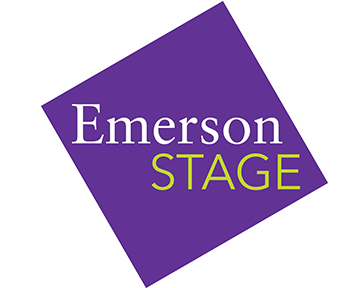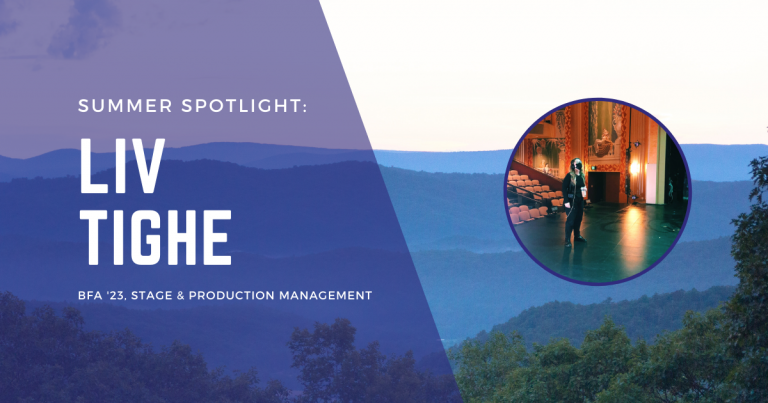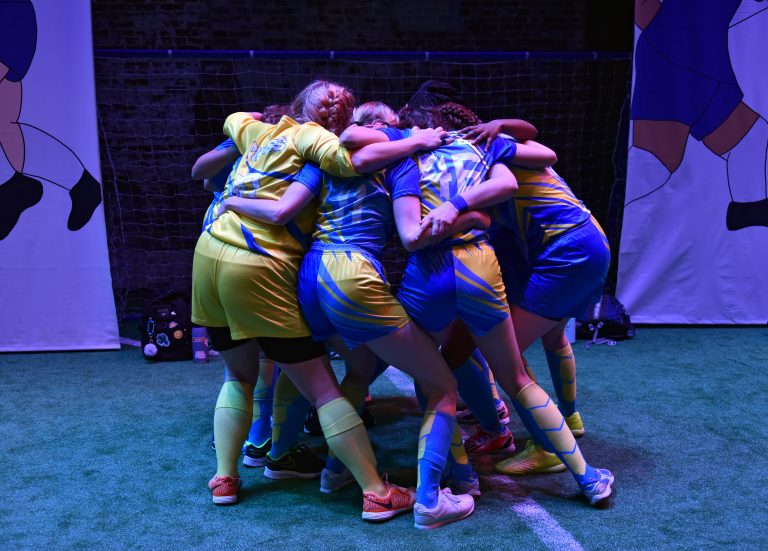An Interview with Brazen Playwrights
BE BOLD, BE BRAZEN: An Interview with Melia Bensussen, Brazen Director and Playwright, and Masha Obolensky, Playwright
The director and playwright of Brazen, Melia Bensussen and her co-playwright, Masha Obolensky have joined Dramaturg Kaitlin Phelan in an interview to discuss the meaning behind the show’s important themes and the overall creative process. Brazen opens February 1st at the Jackie Liebergott Black Box Theatre at the Paramount Center.
- Melia, as a writer and a director, what was fascinating to you about creating a play about fairytales and photography?
Melia: I think with any narrative art form, be it photographs or stories, we look for clues as to how we should behave. Fairy tales have been used as warnings, parables, and as maps to our unconscious desires for centuries. In this process, I have been inspired by a book called The Uses of Enchantment by Bruno Bettelheim, which explores all the different ways that our psyche interprets fairy tales and how we have written fairy tales to tell certain stories we may be afraid to disclose otherwise. I have always been intrigued by that role fairy tales have always played in our individual psyches and our collective culture.
A fairy tale is such a theatrical thing that it seemed like a natural inspiration for a play. Masha and I worked together on a theatre piece a few years back called Not Enough Air that she had written and I directed. We were looking for something to work on together as writers when I mentioned the work of Angela Carter–specifically her collection Bloody Chamber which I had always been fascinated by. That kind of got us started. Since then, we have come very far from Angela Carter, but we have a great nod of appreciation to her for getting us on this path.
- How has what is occurring in our world today been in conversation with the creative process behind Brazen?
Melia: We started to work on this project in December 2013. We have done a lot of things in between, but we kept wanting to come back to our Bluebeard/Brazen work. Since then, of course, the world has changed so very much. We worked with a wonderful group of women in Boston, and everyone shared their stories of Bluebeard-like encounters. But it wasn’t in the context of an international movement [at the time], the energy of the moment now, and that context has changed the nature of the piece. It has become much more about those aspects of the story simply because we associate them with what we see in the news. We imagine the scenarios we’ve all now read about regarding all these different men. When we started this work, we had no idea that the stories were as ubiquitous as they’ve become—we just knew our own stories, the stories of friends. It’s been unsettling, to be honest. One hopes that one’s work is always in conversation with the current moment, and I have always found connections, but I’ve never done something that was so spot-on, so literally on-topic. It is a little terrifyingly far from metaphor for my taste.
- Do you have anything to say regarding the women who struggle to speak out and embrace their voice, whether in their given profession or their everyday lives?
Melia: I am humbled by the women who are speaking out. I have an eighteen-year-old daughter who has taught me a lot about what it means to be a young woman in this society and how to find your voice. I feel at every stage of our life we are learning how to be better humans, wherever we land on the spectrum of gender identity, so that it’s a process of learning what your voice is. When we’re intimidated by the wrong forces, how to speak out. In many ways, working in fiction is simpler than living in reality. This piece is not about what is actually happening, but rather is meant to be taken metaphorically.
- Audiences may recognize figures such as Bluebeard and Little Red Riding Hood in Brazen. Traditionally, these stories depict young women as victims in need of saving. But here, things are different. What motivates you as writers to confront and reconstruct these stories?
Melia: We say it within the piece: what stories we tell and what stories we hear matter. In the original Bluebeard story, the female protagonist is rescued by her brothers. Here, the rescue takes a community, in a sense, of women. It is not that same notion of needing that kind of rescue from outside, from a male hero. We are very aware that women often are the victims. A different kind of rescue is necessary. That was exciting for us. One of the main things we wanted to look at was “Where is agency in this?”
Part of what fairy tales can do is show another way to look at reality and give people superpowers they may not otherwise have. To help us all, regardless of gender, feel more in charge of our lives. And these fairy tales also show us situations from our nightmares. The scariest of the stories show us situations where we are rendered powerless. So, how do you tell a story where you show people accessing power in some way? I would be remiss if I didn’t say our idealism around this is self-expression and that working in art, in some capacity, is part of where you find your voice in agency. This is where female photographers were sort of inspiring to us, for both their good and their darkness.
Masha: We were first inspired by the mother-daughter relationship in Angela Carter’s Bloody Chamber, in which the mother is an adventurer and is the hero in her daughter’s story. I’m raising a six-year-old boy right now, and I’m amazed at how every tale has a “boy story” again and again. It’s the male that saves the day, and he picks up on these messages. And I know that when I was younger, because I grew up in a really strict environment, I was being limited by my parents because of my gender. I was always bucking up against that. I escaped into books and reading. There weren’t that many, but there were certain female characters who were encouraging and like friends to me, such as Harriet the Spy, Nancy Drew, and Marjorie Morningstar. They were all women who transgressed somehow. They didn’t listen to what everyone was telling them, about what they should or shouldn’t do or what they could or couldn’t do. I think all of my plays tend to be about a moment of transformation, about someone who is being trapped by external forces, and I am really interested in change and our capacity to do so. In this case, a deeply entrenched relationship is forced toward some kind of change where both people have to re-imagine themselves.
- Fairy tales play a large role in Cameron’s photography, as well as in Miranda’s music and at various points in her childhood. What impact do you think fairy tales had on your childhood? What inspired you to take on this project?
Masha: My father, who is Russian, grew up in Germany during World War II, and his mother died when he was three. I think that when my father was told fairy tales by his father, they were used as cautionary tales: warnings about going to certain places and interacting with certain people. He, in turn, used fairy tales in a similar way with my sisters and me. To protect us by making us wary of things like walking alone in the forest, or in the world.
- Throughout the play, we witness significant moments in the transformation and maturation of a mother-daughter relationship. What attracted you to explore this type of story?
Masha: I think that is always the type of story I am attracted to! Melia always likes to say that we sort of tell the same story again and again, working through the same thing. For me, I am really fascinated by that, by how fluid identity is, how it shifts with experience and time and also how society insists on defining, limiting, categorizing…
- Melia, what was it like collaborating with Masha?
Melia: Oh, it’s a joy. I think Masha is a genuine theatre-maker to her very core, and an extraordinary writer for the theatre. What I discovered while working on our last project together was how much her vision of what could happen in theatre helped shaped everything I did. I was very excited to collaborate with her again. We have been working on this, like I said, on-and-off for years together to the point where neither one of us remembers where certain ideas or lines come from. It’s really a generous, very seamless collaboration. I feel very lucky.
- Masha, what was it like collaborating with Melia?
Masha: I’m totally honored to work with Melia. I think she is brilliant. She was my teacher first and I think that is always sort of there in our relationship for me! I always feel like I have so much to learn from her, and I think she is such a deep person. I can’t ever imagine not learning from her! And we’re also friends. Collaboration can be difficult, but with Melia it just works. We trust each other and there is a lot of freedom in that. We communicate when it gets hard. We put our friendship first. And neither of us are really concerned about taking ownership over things. We’re all in this room and we are all making this together. It is the greatest gift.


